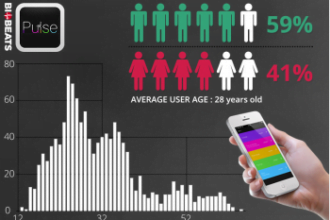As I mentioned by way of the Wall Street Journal back at the end of March, Google Health was supposed to get less support under the new CEO. We learned today that “less support” meant that it would be retired on January 1, 2012 and eventually shut down on January 1, 2013. Basically this means that the grand experiment didn’t work out, but it was valiant and worthy try.
As I mentioned by way of the Wall Street Journal back at the end of March, Google Health was supposed to get less support under the new CEO. We learned today that “less support” meant that it would be retired on January 1, 2012 and eventually shut down on January 1, 2013. Basically this means that the grand experiment didn’t work out, but it was valiant and worthy try.
The folks at Google raised the bar for PHRs and I for one was a fan; however, if Google couldn’t make it work, does it mean that Personal Health Records (PHRs) in general aren’t worthwhile or won’t be successful? I don’t think so, but what we learned from the Google experiment is that there’s little or no demand from the general consumer to store their personal medical records — at least in numbers that would matter. Here’s what Google said in their retirement letter:
There has been adoption among certain groups of users like tech-savvy patients and their caregivers, and more recently fitness and wellness enthusiasts. But we haven’t found a way to translate that limited usage into widespread adoption in the daily health routines of millions of people.
PHRs managed and maintained by patients themselves has been sort of a holy grail for years — but no one has been able to figure out how to make enough money from them or keep the data accurate enough to make PHRs useful enough to clinicians. And, it’s not for a lack of trying; in fact, Microsoft’s got a nice offering (HealthVault) that’s still in good shape so far. But, it’s not clear how long even they can last without a sustainable business model. It’s not like Google didn’t have the money to continue the experiment — they just realized that there were not users in quantities high enough for them to be able to monetize it sometime in the future.
Why aren’t there enough users? There’s one key reason people don’t use something: because the value isn’t there — storing records are nice, but putting the records to some use is important and at least Google’s PHR didn’t show enough utility.
While PHRs haven’t caught the healthcare world by storm, their “Patient Portal” cousins are doing great. Unlike PHRs, which are usually managed and maintained by patients, “Patient Portals” are managed and maintained by a healthcare professional or provider organization — and usually allows for a major feature: messaging and private emails. What we’ve learned is that people aren’t that interested in managing their healthcare records, they are more interested in engaging and communicating with their health professionals. Yes, shocker! People want more time with their physicians and don’t really care who manages their chart. ![]()
Share with us what you’ve learned from Google Health’s demise. I welcome your comments on what you think.







